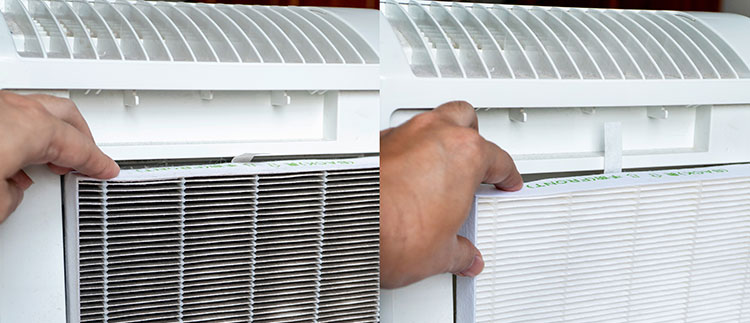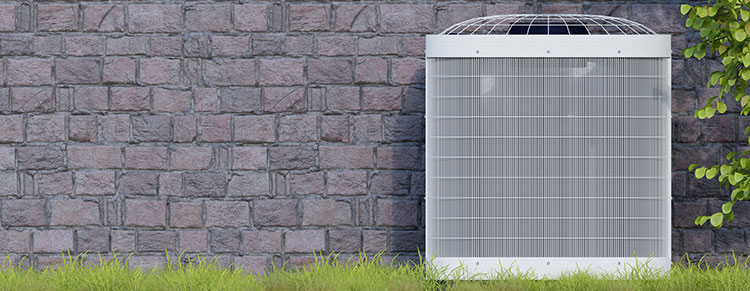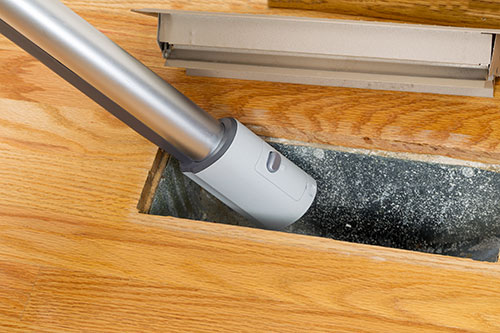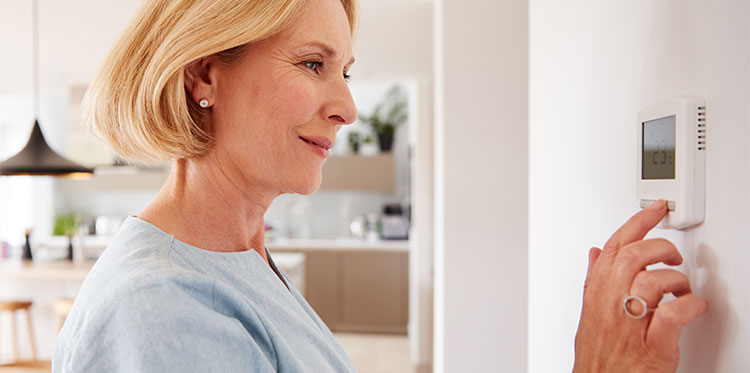
1. Regularly Replace Filters
Check your air filter monthly and replace it at least once every 3 months. Clogged filters force your system to work harder and are a common culprit for HVAC emergency repair calls. A clean filter is one of the easiest and most effective ways to improve performance and save money when using air conditioning, and it’s critical to the lifespan of your system.

2. Clean Outdoor Area
Remove debris and clear overgrown grass, weeds, bushes, and trees 2-4 feet around your unit to allow for adequate air flow.

3. Utilize Routine Maintenance.
Professional clean and checks don’t cost a lot and address areas key to comfort and use. With a simple call, you can ensure your system won’t go down with countless other cooling units when summer temperatures soar.
Trained HVAC Technicians can manage tasks you cannot, including:
- Topping off refrigerant levels to ensure your system provides you with the coolest air possible.
- Cleaning integral components such as the compressor and coils. Not maintaining these components can quickly lead to poor performance and breakdowns in temperature extremes.
- Verify proper thermostat function and manage airflow so you can remain comfortable without constantly adjusting temperatures.
- Utilizing memberships, like the Peace of Mind Club, to get better prices and yearly checkups and cleanings.
4. Clean Out Your Vents
Your HVAC unit can only work at its best if there are no obstructions to the flow of air inside of the walls of your home. Walk through your home and examine each vent. Clear out any dust or debris and make sure the vents in the rooms you want to use your air conditioning in are open. This can help your HVAC get even coverage throughout the square footage of your property. This is basic maintenance that can improve the function of your HVAC, but if you still see issues, you might have to hire a professional to find the deeper problem.

5. Install a Whole-Home Dehumidifier
Install a whole-home dehumidifier to remove excess moisture in the air. Dehumidifiers pull out moisture as air cycles through your HVAC system. While air conditioners help for dehumidification to some extent, the summer humidity levels are often too high for them to efficiently tackle on their own.
6. Invest in a Programmable Thermostat
Many smart thermostat models offer built-in geofencing, sensing your smartphone’s location and adjusting the temperature for your arrival. Upgrading to a smart or Wi-Fi thermostat takes the human error element out – save money on cooling while away so you can better enjoy summer experiences!
Utilize Programmable Thermostats for unpredictable summertime schedules by having your smartphone and smart thermostat work together to decide when to cool your home and when to save on energy costs.

7. Consider Upgrading Your Unit
If you’ve tried all these tips and your HVAC unit is still not sufficiently cooling your home, it may be time to invest in an upgraded system. An older unit may be costing you more money each year due to cooling loss and excess waste. Newer models of air conditioners are being made even more energy efficient and sometimes offer more ways to help lower energy bills. Choosing a new HVAC system is something that you can do with the help of a reputable professional. As always, make sure you are buying from a company that you’ve done your research on to avoid buying a dud unit or overpaying.
